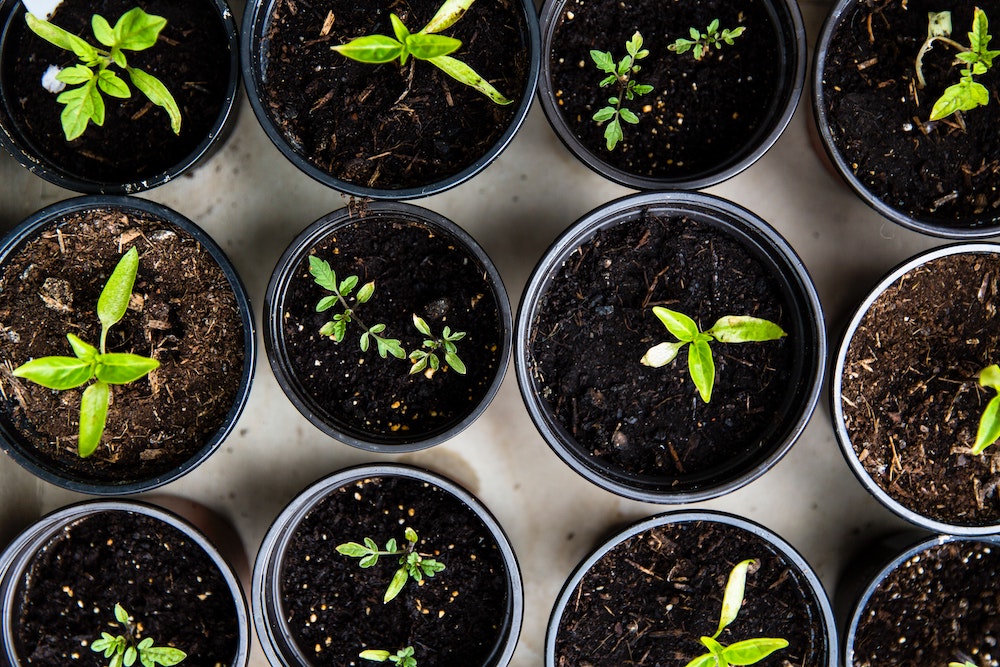
(Unsplash/Markus Spiske)
Sixteen years ago, when I was first making public the undeniable call I felt to religious life, I found two depictions of Catholic sisters in the media especially helpful when sharing my surprising discernment news with coworkers and friends. "Think more 'Dead Man Walking' than 'The Flying Nun,' " I would say.
Sr. Helen Prejean, and Susan Sarandon's powerful cinematic depiction of her ministry accompanying an inmate on death row, helped me to explain to those who loved me that my call to religious life was not to leave the world, but to be present to the world in a particular and meaningful way. Her witness helped friends and colleagues see how maybe I really was called to religious life as a way to be free to follow Jesus and work for God's reign of peace through justice.
It is no surprise, then, that I was delighted by the words Sister Helen spoke last week at the national assembly of the Leadership Conference of Women Religious, or LCWR, when she accepted the Lifetime Achievement Award. "God bless our sisterhood," she said. "We are the free agents of the Gospel." I tweeted this quote, in fact, and had a fangirl moment when Sister Helen retweeted my post!
If we women religious are free agents of the Gospel, it is only because we are, as Sr. Mercedes Casas Sánchez said in her keynote address at the LCWR assembly, "women of the Spirit, moved by a law of freedom." Our way of life, lived in community for mission, guided by the vows of poverty, chastity and obedience, helps us to be present to God's people in need and witness to the radical message of the Gospel.
The theme of the LCWR assembly was "The Realm of Transformation: Creating Space for the Future." According to Sister Mercedes, "In order to create space for the future, to experience a transformational process, we need freedom, that freedom given by the Spirit." This is not freedom from something — like the incomprehensible debate taking place right now in our nation about the freedom to defy mask mandates during our public health emergency — but rather freedom for the Gospel and the common good.
Prior to beginning my present ministry of elected leadership, I was a student at Catholic Theological Union. One day, during my course on religious life with Sr. Maria Cimperman of the Religious of the Sacred Heart of Jesus, we had a special guest— Marist Fr. Gerald Arbuckle. It was another fangirl moment for this religious life nerd, as I had been voraciously reading his work on refounding religious communities as part of my research for the course.
Here he was, live and in person in our classroom, using his hands to explain that the emerging of the new in religious life requires space. I remember him holding his hands in such a way that his fingers formed a circle. This was the existing structure of religious life. The new does not emerge in spite of this existing, older structure. Rather, it is precisely this existing container that provides space for the new to emerge. Almost like a new plant growing in an old pot, he gestured with his fingers how the new emerges within the space held by the old, perhaps in a smaller and less recognizable form.
I remember thinking that this required freedom, courage and energy. The existing structure and those living in the existing structure — from leaders to general membership of all ages — give freedom to those with the energy, vision and commitment to try something new. Maybe it works, maybe it doesn't, but the old structure is there in support all along during its emergence. It is all in service of the whole, part and parcel of the same spirit-led journey begun by the original founding persons.
In his 1997 book, From Chaos to Mission: Refounding Religious Life Formation, Arbuckle defines refounding as "a grace of God, demanding of us a prayerful pilgrimage into a world of gospel faith, ongoing conversion to Jesus Christ and at times discernment in the midst of agonizing darkness and chaos." He asserts that this requires two simultaneous movements: "the ritual of grieving, that is, of letting go the irrelevant, and the ritual of initiation, allowing new life to enter." This is clearly the moment that we find ourselves in as women religious in the Global North. This is our call.
Advertisement
I was reminded of his words during the address by Sister Mercedes. She pondered the serious question about how to create community spaces for the future which might not "encompass what we encompassed before." She too sees the necessity to grieve what was and is no more, and even more she sees this as an opportunity for transformation. "We are at the time of a new beginning, from the meekness and frailty that focuses us on the essential." She recognizes that "we are not starting from scratch." We have the "great cloud of witnesses," our original founding persons, all those who followed, and the resources they have harvested and gleaned for the sake of mission.
We yearn to create space for the future. Where we get stuck is on how. I can't help but think of the title of Peter Block's 2003 book — The Answer to How is Yes: Acting on What Matters. Sister Mercedes also focused on a "yes," the Yes of Mary. "With her Yes, she created the space for the future, and made it possible for what God and she herself wanted to happen. She does not get caught up in her smallness, but rather in the light of the Love that inhabits her space, she lets the reverie of the Spirit who opens us to the future flow."
We are called to create new spaces that nurture, support and serve life — in our hearts and in our communities—with our yes. "Create spaces," according to Sister Mercedes, "suggests attitudes, like willingness, discernment, and seeing for what or for whom you want to make space."
Can I make space for uncertainty? For imagination? For uncomfortable moments? For mistakes? For hope? For joy? I pray for this freedom to be hospitable to the emerging future already present among us. May it be so.







